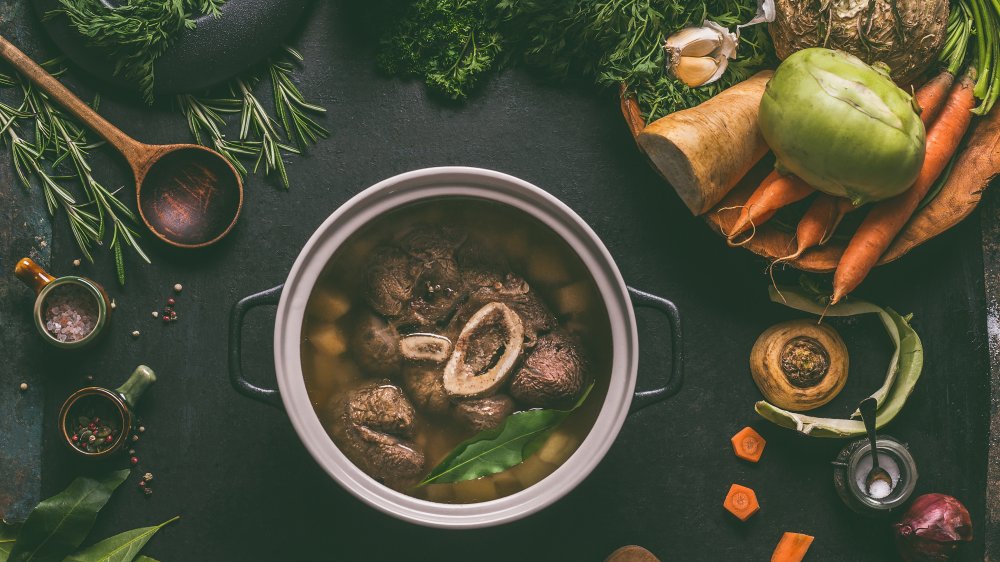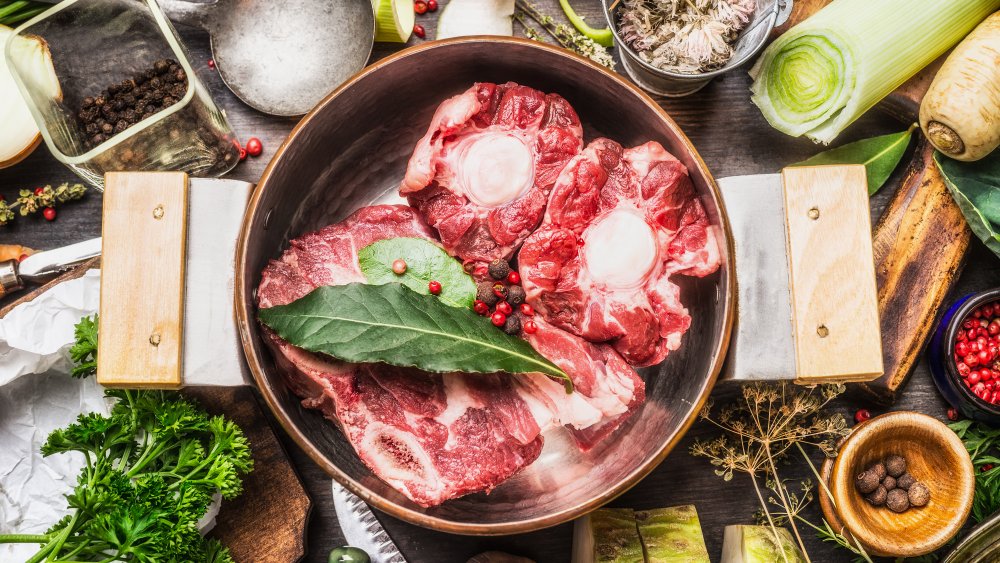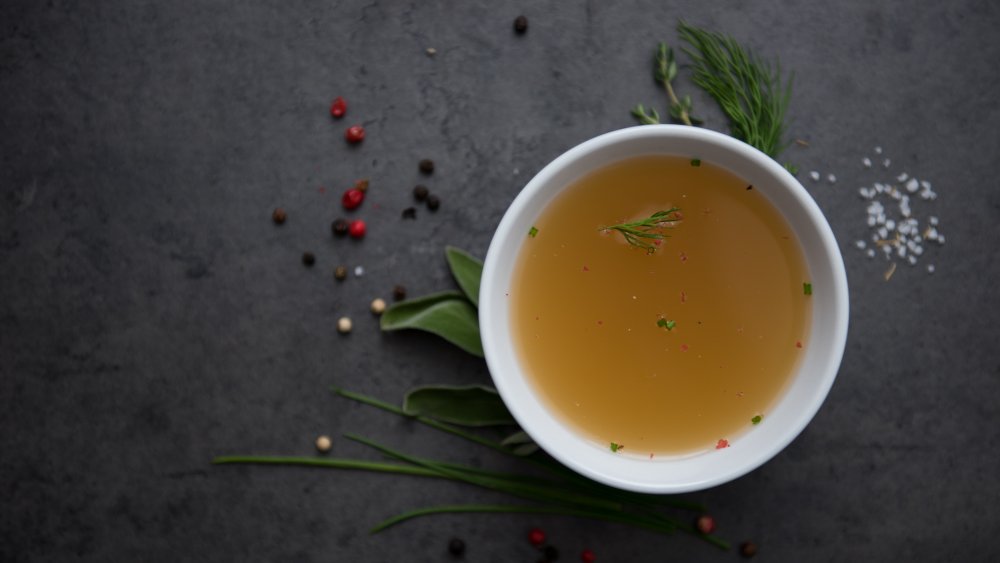Find Out What Happens When You Drink Bone Broth Every Day
There are countless ways to repurpose old food into a new dish. Overripe berries can make for a sweet, sticky compote. Wilted greens and herbs can be thrown into the blender for pesto. Old bones from your rotisserie chicken? Perfect material for a steaming, umami-rich bone broth.
Not only is bone broth versatile — it can be made from oxtails, knuckles, marrow bones, you name it — but it's also bubbling with valuable health benefits. Pun intended. Since the broth can contain any assortment of ingredients, it's basically impossible to calculate the exact nutritional content of any old cup, according to Healthline. However, one thing's certain: When you let it simmer on the stove for an extended period of time — we're talking 24 hours here — you allow the broth to soak up more nutrients and flavor. That's right: Chances are, the better your broth tastes, the more health benefits you get from sipping it. And who doesn't want to be rewarded for eating good food?
You are what you eat (or drink)
While we can't provide you a list of nutritional facts, we can assure you that bone broth is calcium-rich. According to Healthline, animal bones contain calcium, potassium, and magnesium, among other minerals. Calcium is crucial to the human body. Quite simply, it keeps our bones strong and stable, preventing conditions like osteoporosis, according to Mayo Clinic. Let's not forget the past decades of health campaigns that urged us to drink milk: the sometimes-controversial dairy product is packed with calcium. Bone broth, however, is a healthy, non-dairy way to get part of your calcium fix.
And then, there's marrow — that savory, flavorful tissue tucked into the core of animal bones. When marrow makes its way into broth, it not only adds depth to the simmering water — it also adds iron, and vitamins A and K, according to Medical News Today. Iron, like calcium, is essential to the human diet. Consuming the right amount of it protects you from anemia (via Medical News Today). Vitamin A helps with your eyesight, while vitamin K helps to prevent your blood from thinning, which could cause extensive bleeding, according to Live Science. So consuming bone broth, especially on a daily basis, can build calcium, iron, and vitamins A and K. Not so bad for a hot mug of really tasty water.
Potential downfalls
However, there's also some disconcerting — and frankly, frightening — information out there when it comes to daily consumption of bone broth. A 2013 study found something else among the vitamins and minerals: lead. While this was a small study, scientists found notable levels of lead in broth made from organic chicken bones, cartilage, and skin, according to the science journal Medical Hypotheses. Once the bone broth was cooked, the liquid had several times the amount of lead than it had contained when it was plain, untouched tap water.
A later study in 2017 concluded that the risk of consuming lead was minimal, according to the journal Food & Nutrition Research — the lead concentration of the broth fell below daily recommended levels. However, we invite you to keep researching the food you eat. While bone broth boasts health benefits, daily excessive consumption just might be a bit much.


